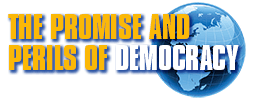The Coronavirus pandemic and its social, political and economic consequences have triggered numerous pessimistic predictions about what the world will look like once this crisis is behind us. Some of the facts are terrifying, indeed. For example, on Monday, Hungary’s Prime Minister Victor Orban pushed a law through parliament that gives him far-reaching emergency powers allowing him to rule by decree without consulting parliament for an unlimited time. In Italy’s impoverished south, the Corona virus crisis seems to be on the brink of turning into street violence and looting. And in refugee camps around the world, the most vulnerable are in acute danger of contracting the virus with all the devastating consequences an outbreak in an environment without appropriate medical care would entail.
And yet, despite all this gloom, the current crisis may well prove as a pivotal point and a chance to make things better. When this crisis is behind us (and we will surely leave it behind, as will be argued below), it will be because of the forces of reason and science. Not wishful thinking, not denial of facts, but the rational application of scientifically gathered evidence turned public policy. We will take the tally of lives lost and economies contracted, and we will ask: Who did it better? Which approach was more conducive to public health and the public good?
This is not a mass extinction event. It is a virus that we understand quite well. Never before in history has a novel virus’ genetic make-up been identified quicker than the one of SARS-CoV-2. Pharmaceutical firms around the world are busy finding a vaccine which is expected to be available by the fall of 2021 the latest. Drugs for treatment of patients who have fallen ill are being tried out. Anti-body tests are being deployed to identify those who have already acquired immunity and might be able to help in fighting the crisis.
Once we are on the other side of this, we will look back and assess the ways we have successfully fought the pandemic. What we will see is that the scientific method together with rational policy responses were most successful in addressing the current crisis. Not misinformation, not populist rhetoric, not partisan bickering, not self-serving denial of facts.
There is hope that the political consequences will be detrimental to populists and partisan division. Maybe citizens will look back to the Covid-19 pandemic as the event that broke populism and reinstalled a sense of respect for facts in government. Maybe adherents of the anti-vaxxer movement will realize the benefits of molecular biology and pharmacology. Maybe voters will turn to political actors who are well informed, open to the advice of the best experts and willing to make political decisions in the light of scientific evidence. The end of the pandemic could bring a new age of reason. Maybe.
